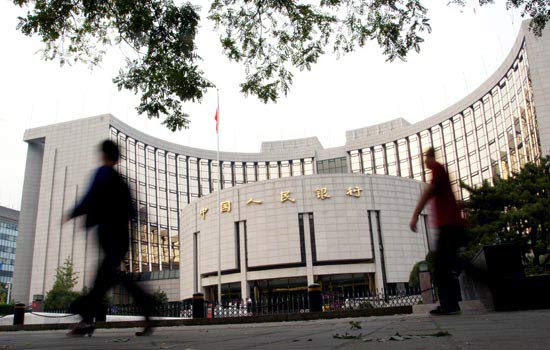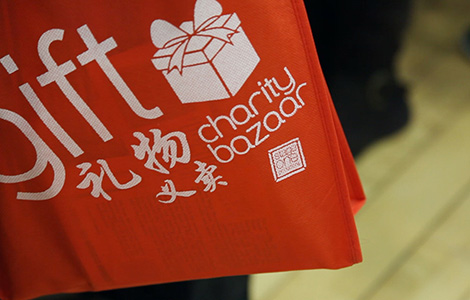PBOC to set up P2P custodians to prevent fraud
Updated: 2013-11-27 07:27
By Gao Changxin in Shanghai (China Daily)
|
|||||||||||
|
 The headquarters of the People's Bank of China in Beijing. [File photo / China Daily] |
The People's Bank of China plans to introduce third-party custodians into peer-to-peer lending, after numerous cases of fraud emerged last year connected with this emerging mode of financing.
Peer-to-peer lending refers to direct lending to unrelated individuals without the involvement of any financial institution as an intermediary. P2P lending takes place online through specialized websites.
P2P companies are supposed to act only as brokers, but many in China started raising funds directly. Numerous cases of fraud involved with this activity drew the attention of regulators.
"We should set business boundaries while promoting the development of peer-to-peer lending companies," a PBOC official told an inter-ministerial meeting on Monday in Beijing held to discuss illegal fundraising. Officials didn't say when any new rules will be announced or take effect.
One way to keep brokers from taking clients' money is to involve third-party custodians, the official said.
Third-party custodian services already exist in equity brokering in China.
P2P lending volumes have tripled annually since this type of financing appeared in China in 2006, according to China Business News' new finance research center.
Outstanding loans on domestic online P2P platforms stood at 10 billion yuan ($1.6 billion) by the end of 2012. There were about 200 lending platforms at that point, with about 50,000 investors.
In China, P2P lenders aren't classified as financial institutions, and there aren't any specific rules governing the sector, so these lenders function beyond the scope of regulators.
The absence of regulations has led to risky practices by P2P lenders, such as investing with clients' funds and failing to conduct due diligence on borrowers.
The sector is so chaotic that local media reported in October that at least one P2P lending company went bankrupt every day.
"Peer-to-peer online lenders have met the market's demand for fast mini-loans, but the sector is in chaos due to the absence of regulations and entrance requirements," said Huang Qingyun, an analyst with China Market Research Reports and Consulting, an online consultancy.
According to the central bank, three types of activity by P2P lenders will be classified as illegal fund-raising, which could draw the death penalty in China under certain circumstances.
The first type of activity involves a P2P lending company packaging borrowers' applications into financial products, which are then sold to investors (essentially a form of securitization), or pooling investor money and then seeking borrowers.
In the second type, P2P lenders will be held accountable if they fail to conduct proper due diligence and let borrowers raise large amounts on their platforms for financial investment or relending.
In the third, Ponzi schemes are also strictly banned. A Ponzi scheme involves fundraisers paying returns to investors from their own money or the money paid in by subsequent or other investors, rather than from profits earned by the individual or organization running the operation.
Related Stories
Supervision urged for P2P lending as risks loom 2013-11-19 22:08
Banking watchdog warns of P2P loan risk 2011-09-14 10:39
PBOC to let yuan float more freely 2013-11-20 01:41
No policy tightening by PBOC: HSBC economists 2013-10-25 17:18
Banks' liquidity set to remain ample: PBOC 2013-10-17 07:12
China's growth rate to exceed 7.5%: PBOC official 2013-10-11 14:45
Today's Top News
China, Romania call their ties 'exemplary'
EU demands protection against US
Confucius' lessons still relevant: Xi
Van Rompuy affirms EU-China ties
Li looks to closer relations
China readies moon rover mission
Economist calls for market-driven urbanization
China to expand trade with CEE countries
Hot Topics
Lunar probe , China growth forecasts, Emission rules get tougher, China seen through 'colored lens', International board,
Editor's Picks

|

|

|

|

|

|





